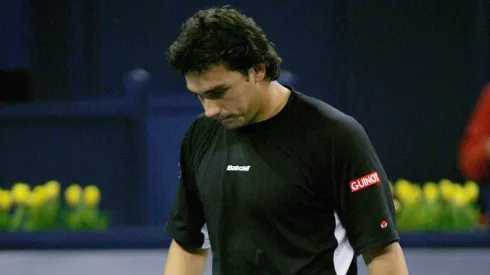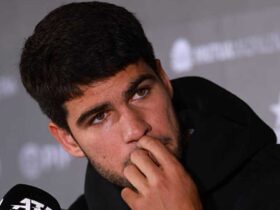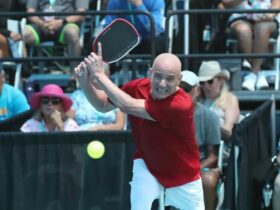Argentinian Mariano Puerta reached World No. 9 and faced Rafael Nadal at the French Open. However, a doping suspension ended his career. Later, he admitted to having lied in his case.
Mariano Puerta’s career was defined by moments of brilliance and controversy. Born in Córdoba, Argentina, he moved to Buenos Aires as a teenager to pursue a professional tennis career, inspired by Guillermo Vilas, a close friend of his father. While he achieved some success, including reaching the French Open final in 2005 against Rafael Nadal, he left the sport after two cases of doping.
As a junior, his most notable achievement was reaching the 1995 Roland Garros final against Mariano Zabaleta, which he lost. Despite losing that final, Puerta was already making a name for himself, and as he transitioned to the professional circuit, he achieved strong results, particularly on clay.
He had little difficulty staying in the top 100 and even won his first ATP title in Palermo, Italy, in 1998, defeating Franco Squillari. In 2000, he had a brilliant season, finishing second only to Gustavo Kuerten in the most clay-court wins. That year, he claimed the ATP title in Bogotá and reached the finals in Mexico City, Santiago, Gstaad, and Umag.
His injuries and his struggles with mental health
Puerta’s career was on a steady rise after an outstanding 2000 season. He established himself as one of the best on clay, but a wrist injury sidelined him for an extended period. His return to the court was not easy, and it took him time to realize that a psychologist could help.
In 2020, he would tell La Nacion about that period of time: “In 2002, I wasn’t improving. I felt 100% responsible for the failure that was my return after surgery. I was so aware of it that I started hurting myself on purpose—sometimes deliberately hitting balls out, not being humble, not running for certain shots.”
He added, “You need a lot of humility to succeed in anything. Sometimes, achieving so much success at a young age makes you arrogant. There came a moment when I said, ‘Either I forgive myself, or this is over.’ I couldn’t go on like that.” However, the setbacks wouldn’t stop there.











Leave a Reply